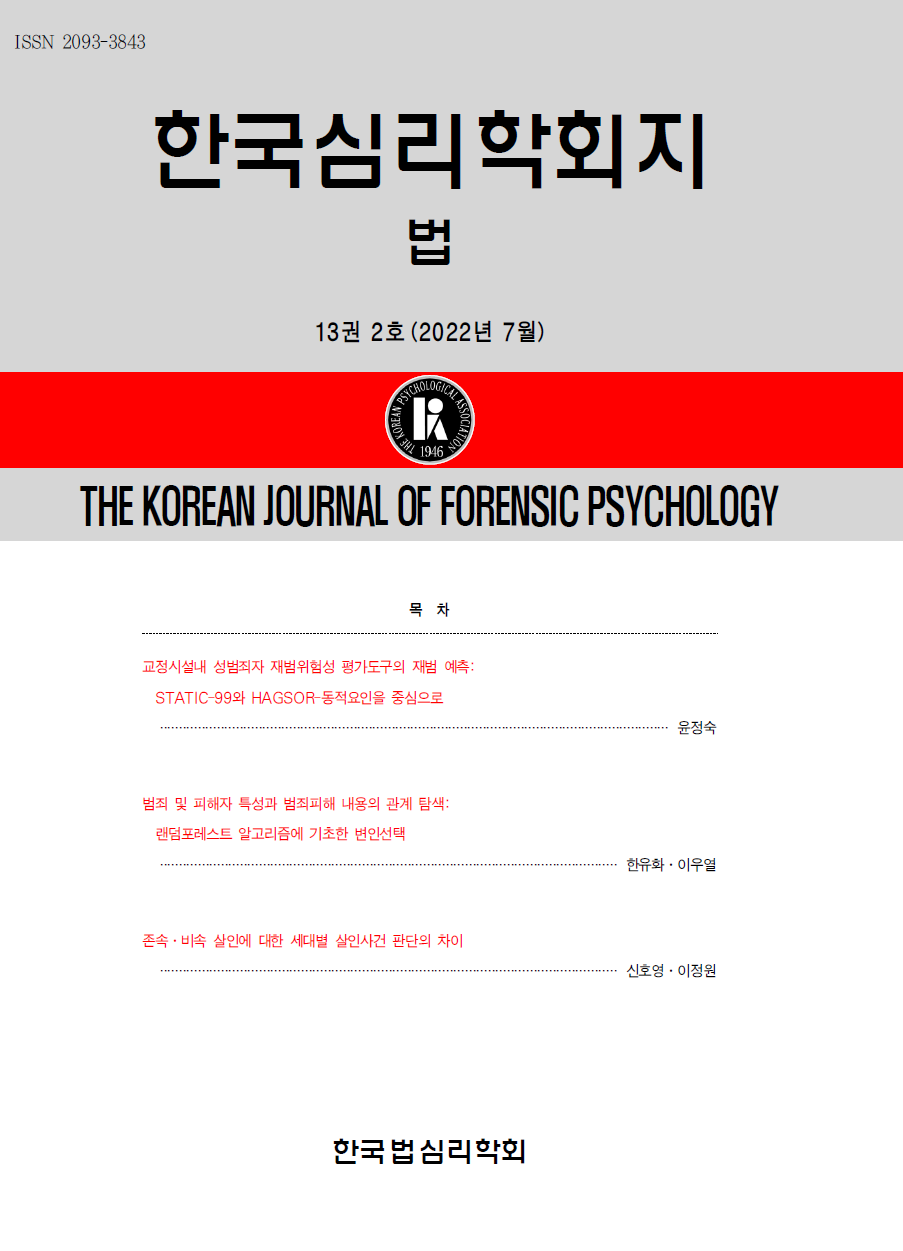 ISSN : 2093-3843
ISSN : 2093-3843
This study was conducted to determine whether the effects of statement consistency and relationship type on case judgements were the same for bribery and sex assault. Participants were randomly assigned to one of eight conditions: 2 (offence type: bribery, sex assault) × 2 (statement consistency: yes, no) × 2 (defendant-witness relationship type: acquaintance, stranger) and watched a trial animation. They then responded to an attention check, a statement credibility judgement, and a case judgement questionnaire. In the end, 173 responses from adults aged 20 and older were used in the analysis. Our findings are summarised below. First, in both bribery and sexual assault, witnesses were judged more favourably when they were consistent in their statements than when they were not. However, there was no main effect of relationship type and no interaction effect of relationship type × statement consistency. Second, for both bribery and sex assault, the full mediation effect of testimonial credibility on the relationship between testimonial consistency and case judgement was significant, i.e. when testimonial consistency was high, testimonial credibility was judged to be high, and the case was judged to be more favourable to the witness. In conclusion, the effects of statement credibility judgements on case decisions were fairly similar across both crime types. Finally, we discuss the limitations and implications of this study.